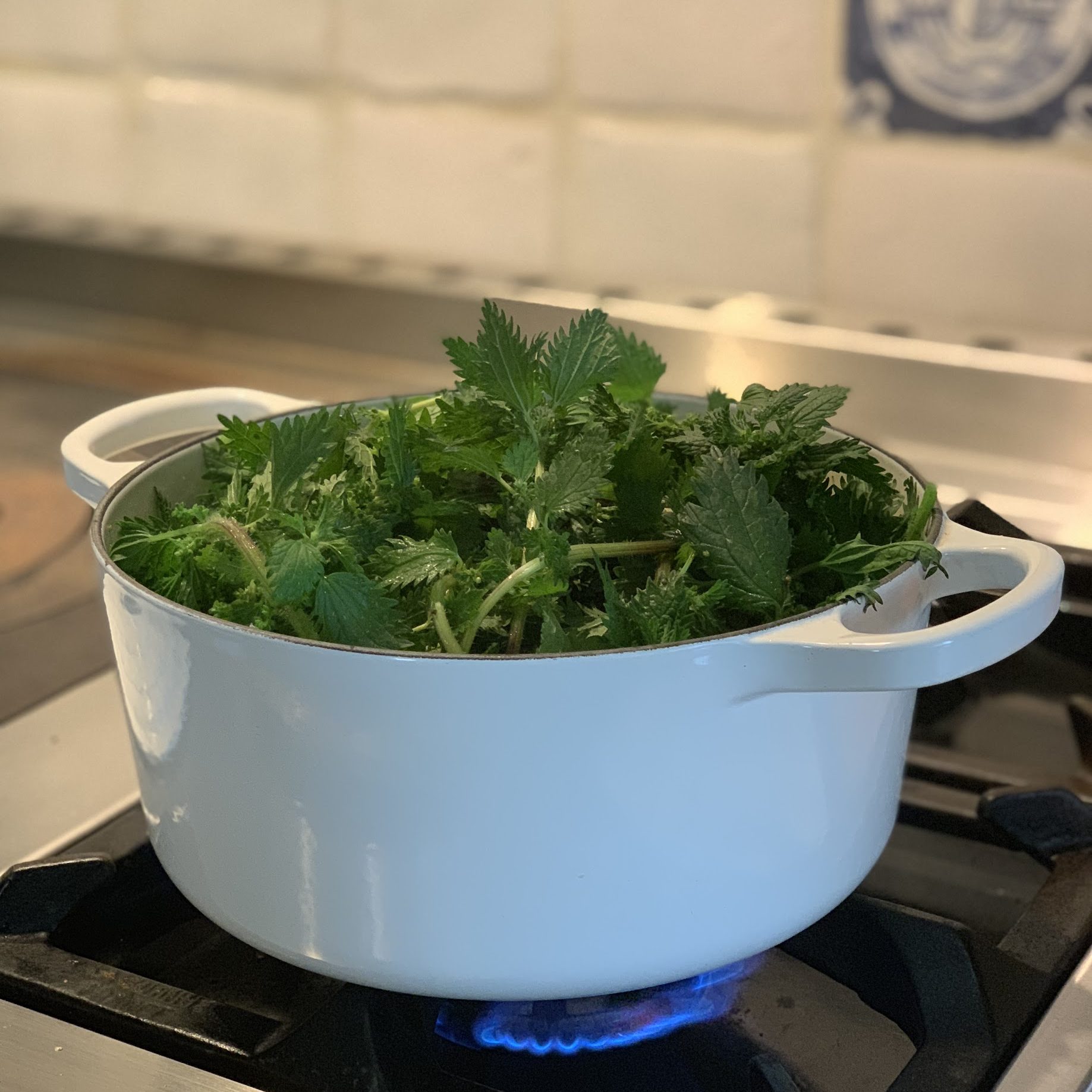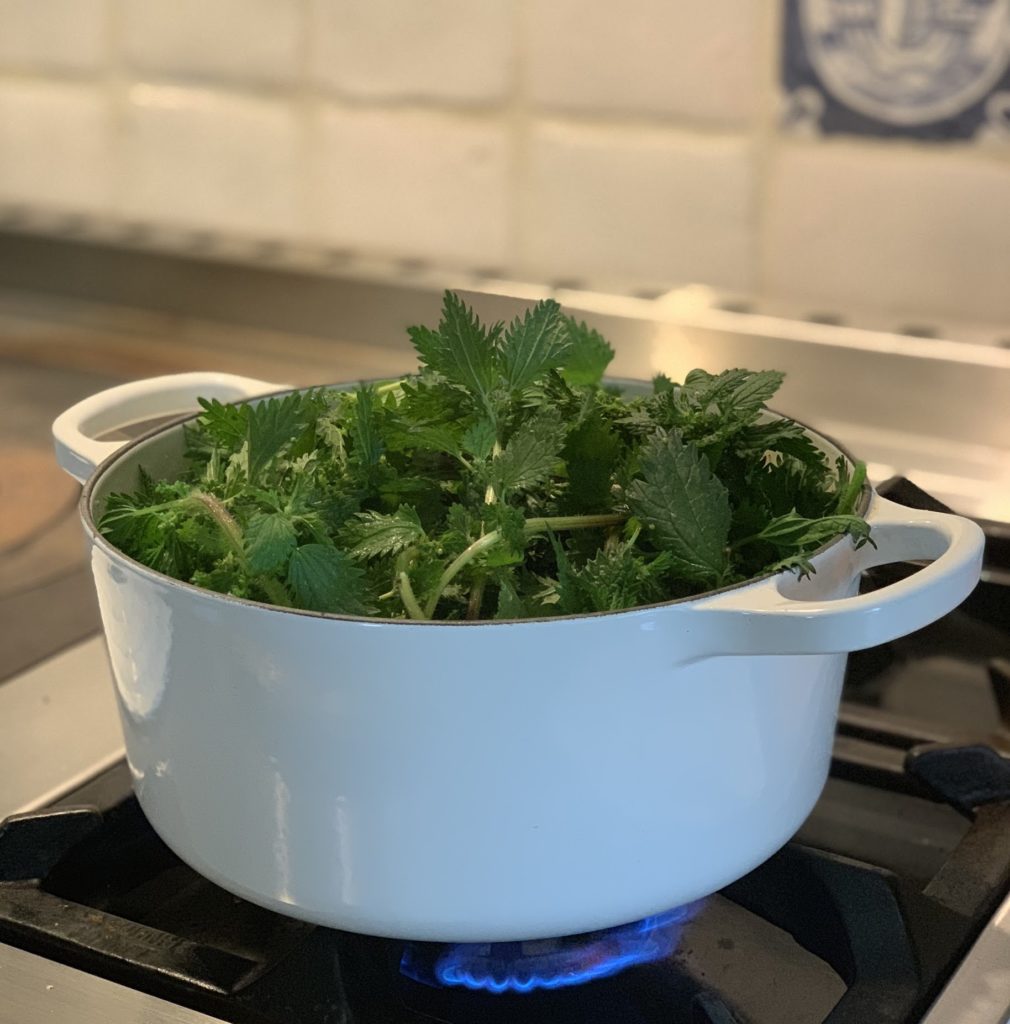
Intro to Nettles
November 19, 2019
Stinging Nettles are perhaps one of the more infamous medicinal herbs, as this abundant green grows all over the world and is commonly foraged to make into delicious homemade meals. The green leaves are gathered to add to decadent dishes including herbal vinegar, pestos, pâtés, butter, broths, soups, sautés, casseroles, and more. These vibrant green leaves are packed with vitamins and minerals, lending invaluable nutrition to any meals of which they are a part.

The entire Nettles plant is used medicinally, roots, leaves, and seeds. While the roots have proven to be useful in formulas for an enlarged prostate and urinary tract issues, the seeds are potent antioxidants often used as a kidney and liver tonic. However as I mentioned previously, it is the leaves that are most well known and widely used as both food and medicine so they will be our focus today.
Nutrient-Dense Greens
As I mentioned before, the green leaves of Nettles are an amazingly nutritious food. They are rich in vitamins A, C, K1, and several B vitamins, as well as calcium, iron, magnesium, potassium, silica, phosphorous, and manganese. Nettles status as a food herb that can be used both as a food and medicine, makes it a premier remedy for those feeling frequently tired or low energy, or suffering from anemia, nutrient-deficiency, leaky gut, chronic fatigue, or any long-term illness that has resulted in a period of convalescence. It is also an excellent nourishing ally during pregnancy and postpartum stages, and can help encourage breast milk production. Additionally, Nettles can be wonderful for those who have weak nails and hair, or who scar and bruise easily.
Cleansing & Inflammation
Nettles are anti-inflammatory due to an array of powerful compounds contained inside. Two of these compounds include the flavonoids quercetin and rutin, both of which are utilized as an anti-inflammatory and an antioxidant to help fight free radicals. Nettles are also quite detoxifying and are very useful during cleanses or fasts. Thanks to the numerous inflammation fighting compounds and cleansing properties, Nettles lends itself to many remedies for hay fever, allergies, asthma, acne, eczema, psoriasis, itchy skin conditions, and insect stings and bites.
Lastly, Nettles are commonly known as an astringent herb. This means Nettles helps to tone and tighten tissues, while also being quite drying. As such, they are a handy remedy in broth or tea given to someone dealing with excessive diarrhea, though additional herbs would certainly be welcome. They can be helpful to reduce heavy menstrual bleeding and rebuild and nourish the body and blood afterwards.
Final Thoughts
When taken daily for many weeks, Nettles can dramatically help to relieve seasonal allergies. For this purpose, I would suggest consuming them alongside raw and unfiltered local honey. My favorite way to consume Nettles is either in a warm tea infusion or added to homemade meals. There are high-quality capsules available on the market as well, but I wouldn’t suggest buying an alcohol-based tincture. One of Nettles greatest attributes is its mineral content, which is best extracted into water or vinegar.
Whenever I make Nettle tea I always add a generous amount of Marshmallow root so it isn’t overly drying (another demulcent herb would work as well). When I first began studying herbalism, one of my favorite tea blends was to brew a cup of Nettles, Marshmallow, and Rosehips everyday. This simple and nutritive blend is a great place to start!